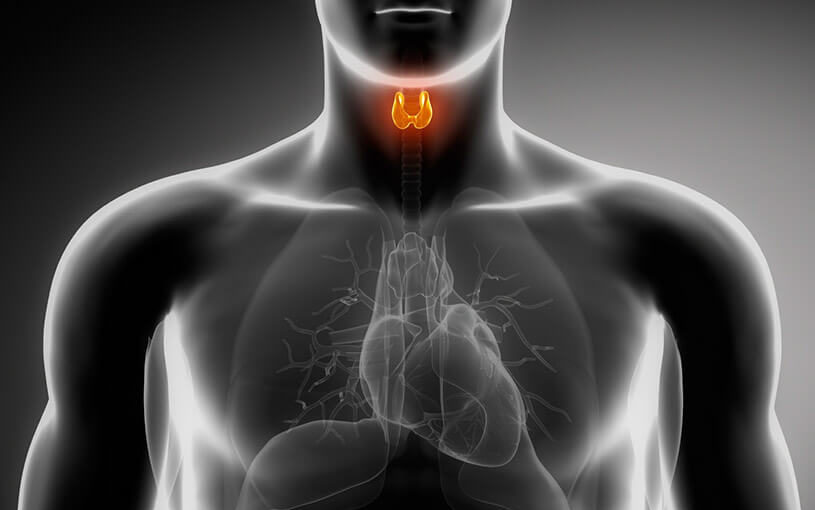Hypothyroidism (an underactive thyroid) affects around 5% of Australians. Jason Matthews, a father of two from the Sunshine Coast, is one of them.
“Last year I started to feel really tired and run down – and I’d been putting on some weight around my face. Initially I just put it down to getting older.
But it went on for months and eventually I knew I had to see a doctor. I’d get home from work and be passed out on the couch within fifteen minutes.”
Jason was sent for blood tests. He was nervous and immediately prepared himself for the worst.
His doctor’s diagnosis of Hypothyroidism was the last thing he expected; “I thought it was something only women suffered from.”
The thyroid gland secretes hormones to regulate your metabolism. Hypothyroidism means the thyroid gland is underactive and fails to secrete enough hormones into the bloodstream. This causes a person’s metabolism to slow down – hence Jason’s lack of energy and weight gain.
And although the condition is more prevalent amongst women – it is estimated to affect up to 10% of Australian women – it still affects men too. Jason points out, some men’s reluctance to visit the doctor can put them at higher risk of leaving the condition undiagnosed, and therefore untreated, for longer. “I think they think it’s not ‘macho’ to go to a doctor” he says.
Jason was prescribed medication and was instructed to have regular blood tests to monitor his thyroid function. Unfortunately this was just the beginning.
Jason had been diagnosed with Irritable Bowel Syndrome years earlier. His doctors now believe that this may have been the root cause of a diverticular upset that would put Jason in hospital just months after his hypothyroidism diagnosis.
“I thought I was coming down with the flu. It came on suddenly one night – I was shivering and had convulsions. I felt really cold so took a hot shower and went to bed. The next morning though I felt awful. I went back to the doctor, who assessed my symptoms and sent me for some urgent blood tests. The tests confirmed I’d developed sepsis from an infection and I was sent straight to hospital for treatment.”
Jason underwent numerous blood tests in hospital in order to find the correct antibiotics and monitor his health – as well as to diagnose and treat VRE (Vancomycin-Resistant Enterococci) – a superbug that he caught as an inpatient.
2016 has been a healthier year for Jason but he’ll always be grateful for pathology services;
“A blood test saved my life on more than one occasion last year. We take it for granted that there are these people devoting their lives to treating us in pathology labs, but they don’t get enough credit. They’re really the unsung heroes of the healthcare system.”

